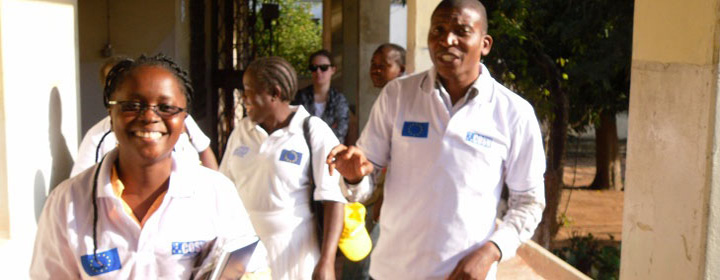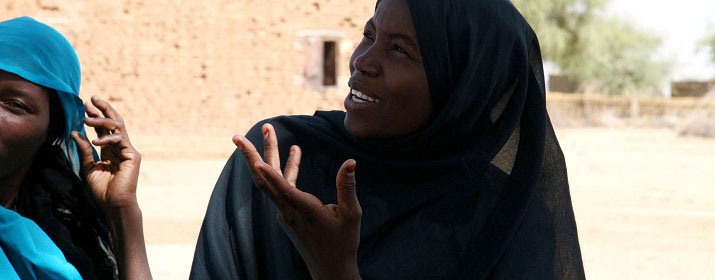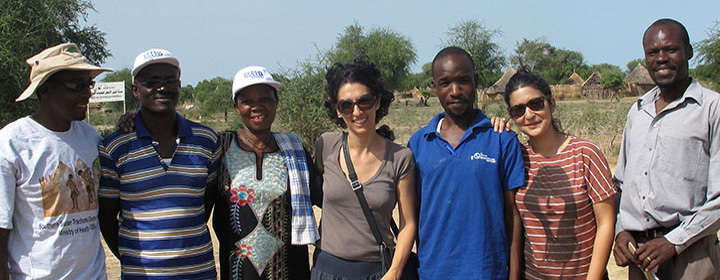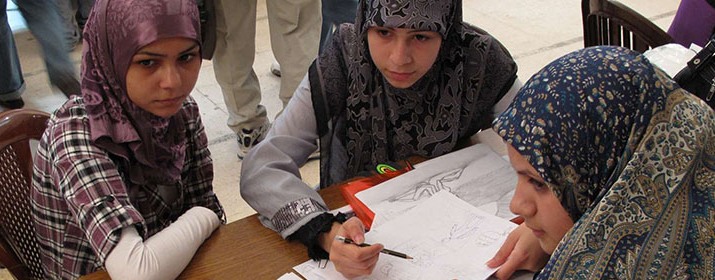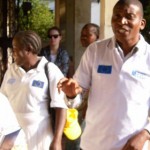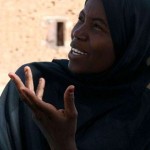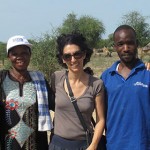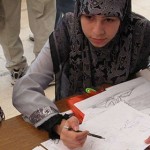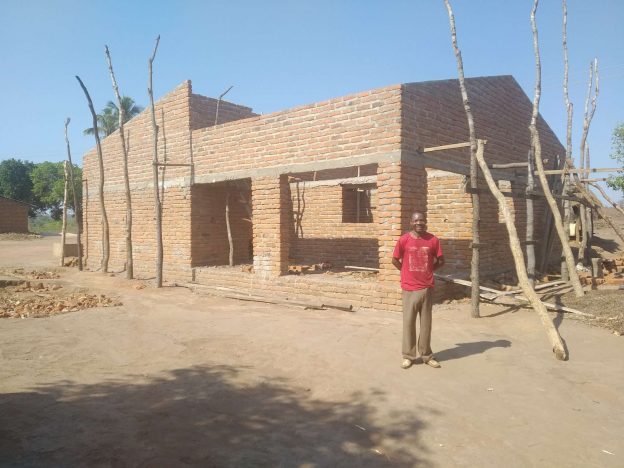The Agri-SMART project and the history of Juvencio: how to build a house with the income generated by climate-smart agriculture
Agriculture in Mozambique: a general picture
In Mozambique, agriculture is the primary source of livelihood for 80 % of the population. 95% of the national GDP is generated by the work of small producers, who, however, cultivate only a small part of the arable land in the country and do so with rudimentary methods, which make production scarce and little diversified.
The main problem is the high levels of poverty and chronic malnutrition, which are higher than the national average. They are an obstacle to the possibility of integration into the social, political, and economic context of the country. About 93% of the population lives in rural areas, compared to a national average of 69.4% (IOF 2014/15), is employed in semi-itinerant subsistence agriculture, which is the primary cause (over 80%) of deforestation, resulting in erosion and soil impoverishment. Poverty rates are strongly gender-unbalanced, with 63% of households run by women below the poverty level, against 52% of households run by men.
Low productivity, low agricultural yields, insufficient infrastructure, limited access to production support services, are the elements that characterize family agricultural production. The storage and processing capacities of the products are limited, with a post-harvest loss of up to 30%. In addition, there is a very high dependence on climate and environmental degradation, accelerated by destructive practices linked to traditional agriculture, which limit the availability and quality of food in rural households.
66% of the agricultural workforce are women, employed in 85% of cases in subsistence farming, with reduced access to productive resources, limited control over the management of production and family income, and a general lack of decision-making power, both at home and at a Community level. In this context, the economic activities of women refer to the informal market, which prevents them from access to credit. While they play a leading role in production and post-harvest activities, they continue to be excluded from decision-making processes and development opportunities, due to the low level of literacy, limited access to information and cultural traditions and standards which limit their control over land assets and investment decisions and which prevent them from making greater economic efforts. Finally, the great dependence on climatic factors for agricultural production and the survival of one’s household determines an enormous vulnerability in the population of the area, which in the last three years has also had to face the increasingly frequent consequences of climate shocks such as cyclones and drought.
The Agri-SMART project: supporting the resilient and inclusive development of the districts of Lugela Derre Namarroi and Gilè in Zambezia – Mozambique, funded by the Italian Agency for Development Cooperation and implemented by COSV – Coordination of Organizations for Voluntary Service together with CELIM – Centro Laici Italiani per le Missioni, Università Degli Studi di Urbino Carlo Bo (UNIURB), Società Cooperativa Sociale Eliante Onlus, Fondazione PIME Onlus, Università Degli Studi di Milano – Dipartimento di Scienze Agrarie e Ambientali e Carbon Sink Group, has intervened in the last four years on each of these elements to strengthen food security in the four districts of Derre, Lugela, Namarroi and Gilè and, specifically, to promote the development of agro-sectors sustainable food and increasing population resilience to climate change.
The intervention of Agri-SMART
Within this context, Agri-SMART has based its intervention on the 3 pillars of Climate-Smart Agriculture (CSA):
1. sustainably increase production;
2. improving the resilience of farmers;
3. reduce CO2 emissions where possible;
This approach, which consists of a set of agricultural production techniques, has been introduced since 2015 with the assistance of FAO as a sustainable model to increase the productivity of the family sector and minimize the impact on the territory of customary agricultural practices and is at the heart of the support programs funded by IFAD, USAID and World Bank in the country.
Following this line, the project responded to some of the needs identified in the target area, introducing techniques for the improvement and increase of agricultural production and seeds of greater use, systems of preservation and processing of products, and market access for their sale. Action has also been taken to strengthen food chains in fish farming and beekeeping, which already exist in the area but are also underexploited at the market level. Finally, a great deal of work has been done for women’s empowerment in financial management within the community and their important role also in their own families. Even the youngest population was involved in the project, through the creation of environmental clubs in 14 secondary schools in the districts. The decision to work with teenagers who are about to finish their studies and probably start work in their machamba (agricultural field) is linked precisely to the need to bring about a change in the type of techniques traditionally used by previous generations and often harmful to the environment from the outset, showing that sustainable alternatives are possible and that they not only have a positive impact on the environment but also and above all on farmers who see their production increase.
In parallel with the development of activities in Mozambique, sustainable development education events in middle and high schools were promoted in Italy, dedicated to spreading the culture of respect for the environment and the knowledge learned during the application of the project.
The story of Juvencio – From the land has collected the “fruits” to build a house
The project, started in 2018, is having many success stories that see our beneficiaries as protagonists. Among these, there is certainly the story of Juvencio, who strongly wanted to change his life by deciding to become a professional seed multiplier. What is a seed multiplier? A seed multiplier or germplasm multiplier is an agricultural producer, specialized in the production and selling of certified improved seeds. Such seeds are sold after receiving an analysis and certification process. Juvencio has officially entered the Agri-SMART program and has participated in a series of training that has trained him and helped to improve his agricultural activity.
Certified seed production in Zambezia is very rare because of its apparent complexity and the strict rules to be followed for obtaining this recognition by the Zambezia Seed Laboratory (a body which makes official and certifies the quality of the seed) but is extremely necessary when, precisely because of a lack of good quality seed on the market or the high price of seed certified as imported, leads to very low agricultural production due to the low germination rate of the same.
Juvencio is proof of this, the activity of seed multiplication, with the right level of attention and supervision, leads to a great profit for its producers, but also to its consumers, who have access to a high-quality product at a much lower price than they would encounter on the market.
We then interviewed him for you:
Juvencio, what was your experience in the Agrismart project?
My experience within the Agri-SMART project started in 2018 and consisted in the production of improved seeds for sale and use by other farmers like me. I have not only dealt with this, but I have also learned new techniques useful for the preparation, delimitation, and cultivation of the fields. To do this job, you have to have a strong spirit and a good mastery of cultivation techniques, otherwise, you risk not using the soil effectively.
How has your life changed thanks to the project?
My life has changed for the better thanks to your teachings, which have allowed me to develop new approaches to seed production and cultivation. Before, I never thought I’d be able to produce certified seed and sell it at the provincial and district level.
Are you happy with the way things are going?
Definitely! I am very happy and I am grateful that I could participate in the project and collaborate with COSV. The activity is proceeding at a very good pace and I am happy to have learned all this knowledge.”
How has your financial situation changed?
My financial situation has changed a lot. Today I can even afford to have a stand for the sale of my products and seeds. Now I’m building a house because of the savings I made from my production business. Seeing the savings increase through my business encouraged me a lot.
Why did you decide to build a house?
I decided to build a house for my children and my family. I also wanted to show my neighbors and the other producers that with farming you can live very well and build your own dream home.
How’s the house building going?
Right now I’m building the sides of the house and I have to say it’s coming very well. I am very happy because COSV allowed me to produce seeds for other farmers and to be able to get the money to build my house. My most sincere congratulations to all the partnership that has united my community to achieve better product stability.
“Quero dar um forte abraço à toda a Cooperação Italiana. Obrigado!” – (I want to give a strong hug to the whole Italian Cooperation. Thank you!)

